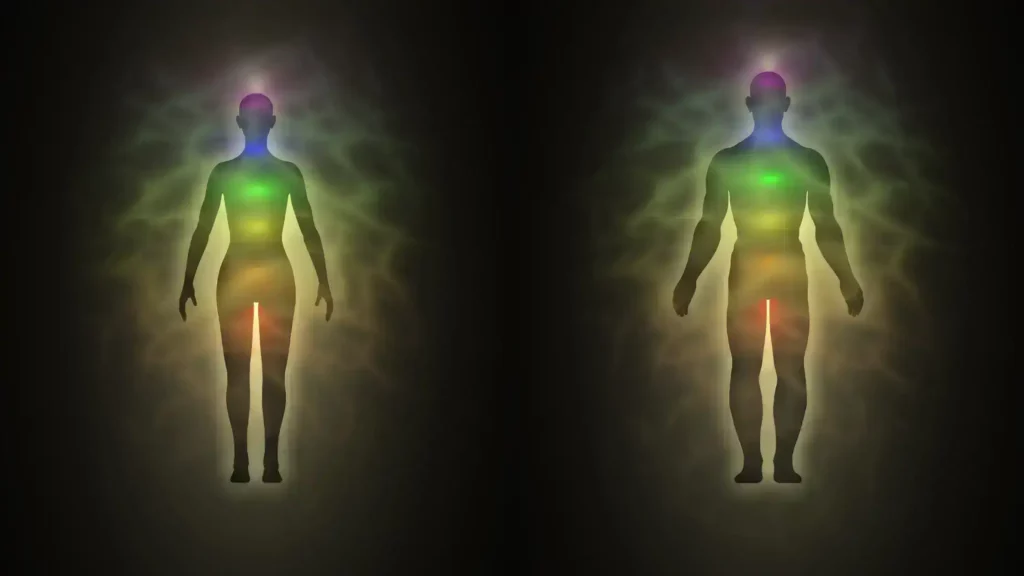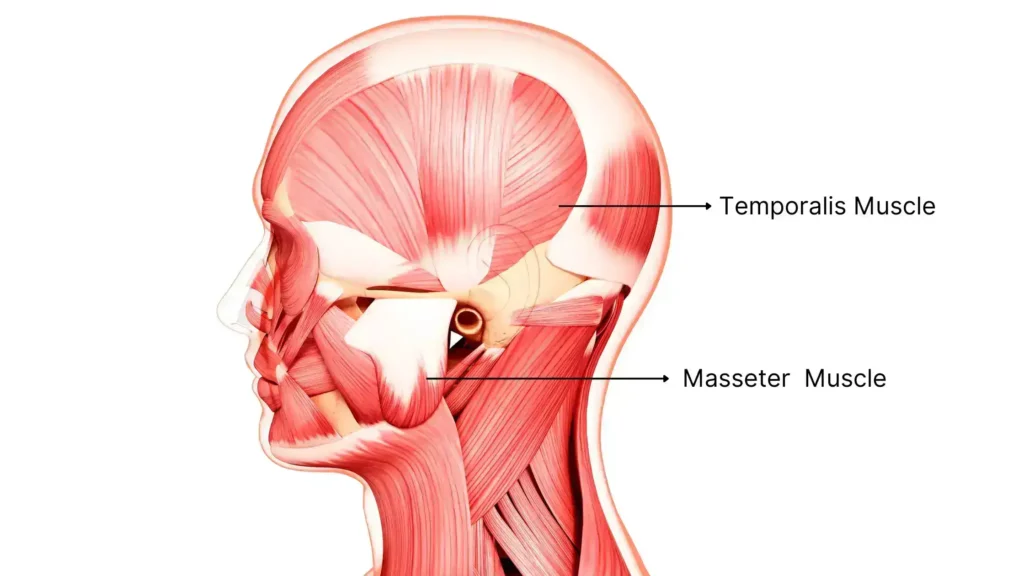How trapped emotions manifest as TMJ pain
Ever found yourself clenching your jaw in stress, grinding your teeth when you’re anxious, or waking up with an achy jaw? It’s a more common experience than you might think. We all know stress can be a real headache, but did you know it could be causing that literal pain in your jaw, too? Well, your jaw may be holding onto more than you realize.
In this article, we will explore different insights revealing how long-held emotional stress can manifest in the body as jaw, neck, and dental issues. Learn why addressing thought patterns, resentment, and inner conflicts greatly accelerates TMJ recovery beyond just physical therapy alone.
“Holding on to anger, resentment, and hurt only gives you tense muscles, a headache, and a sore jaw from clenching your teeth. Forgiveness gives you back the laughter and the lightness in your life.”
– Joan Lunden
Mind and body connection
The mind and body connection is the idea that our thoughts, feelings, beliefs, and attitudes can affect our physical health and vice versa. For example, stress can cause headaches, muscle tension, and digestive problems, while relaxation can lower blood pressure, improve immunity, and enhance mood.

The mind-body link
The mind and body work together mutually, affecting each other’s functioning. Our physical health can change our mental state, and our emotional states can show up in our bodies. The connection is clear and strong.
Feelings as signals
Feelings, even though they seem abstract, act as signals between the mind and body. When we feel happiness, anxiety, grief, or anger, our bodies react—our heart rate may vary, our muscles tighten or loosen, and our hormones fluctuate. It’s a dynamic exchange.
Psychosomatic symptoms
Psychomatic symptoms are physical symptoms that have a mental or emotional cause. This is a clear demonstration of the mind-body connection. For example, when we’re anxious, we may experience symptoms like an upset stomach, rapid heartbeat, or sweating, These are physical reactions triggered by our mental state.
The mind and body connection is not just a theory but a scientific fact. Research has shown that the brain and the nervous system are closely linked to the immune system, the endocrine system, and the cardiovascular system. By understanding and improving the mind and body connection, we can enhance our well-being and prevent or treat many diseases.
How is TMJ syndrome related to your emotions?
TMJ syndrome is a condition that affects your jaw muscles, making them tense, sore, or stiff. It can cause problems like difficulty opening or closing your mouth, pain in your face, headaches, or clicking sounds when you move your jaw. TMJ syndrome is not just a physical problem but also a reflection of your emotional state.
TMJ treatment isn’t complete without shining a spotlight on the emotional aspects. It’s about more than physical exercises and therapies; it’s about addressing the emotional baggage carried in the jaw.
GNM case study perspective on TMJ
Let’s take a journey into the intricate workings of our jaw muscles, exploring their development and essential functions through the lens of German New Medicine (GNM).
German New Medicine is more than just a health philosophy; it’s an alternative approach to wellness crafted by German physician Dr. Ryke Geerd Hamer. Often referred to as “La Medicina Sagrada” or Sacred Medicine in Spain, GNM goes beyond the physical, delving into the realms of the spiritual.
At its core, GNM revolves around the idea that our physical and psychological well-being is intricately linked to our emotional experiences. Dr. Hamer suggests that when we face emotionally charged situations that we struggle to cope with, these experiences become imprinted within us. The result? Physical or psychological symptoms manifest as our bodies attempt to grapple with unresolved conflicts.
According to German New Medicine, TMJ syndrome is caused by an emotional conflict that makes you feel unable or forbidden to “bite” or express yourself. This could be a situation where you have to deal with a competitor, a colleague, a family member, or even yourself. When you face such a conflict, your brain sends signals to your jaw muscles, making them lose cells or become paralyzed. This is your body’s way of coping with the stress.

Biological foundation
Originating from the new mesoderm, these jaw muscles are not merely mechanical; they are deeply connected to our brain’s control centers. The cerebral medulla oversees the trophic function—ensuring the nutrition of the tissue—while the motor cortex, a part of the cerebral cortex, takes charge of the intricate movements.

Brain level control
Jaw muscles are controlled by two parts of the brain: the cerebral medulla and the motor cortex. The cerebral medulla makes sure the jaw muscles get enough nutrients, while the motor cortex tells them how to move.
Biological conflict
The jaw muscles can be affected by a type of emotional stress called a biological conflict. This is when you feel like you can’t or shouldn’t “bite” someone who is bothering you or when you have trouble expressing yourself. This conflict can cause the jaw muscles to lose cells and become weaker or paralyzed. This condition is called Temporomandibular Joint Dysfunction (TMJD), and it can make it hard to open or close your mouth. If you have a strong emotional reaction to a situation that makes you feel like you can’t or shouldn’t express yourself, or if you feel threatened or challenged by someone. This could be a conflict with a person, a group, a situation, or even yourself. You may feel angry, frustrated, powerless, or trapped. You may also have physical symptoms like pain, stiffness, or difficulty in moving your jaw.

Conflict-active phase
During the conflict-active phase, our jaw muscles experience cell loss (necrosis) orchestrated by the cerebral medulla. Simultaneously, the motor cortex-controlled jaw muscles face increasing paralysis proportional to the conflict’s intensity. This orchestration, termed Temporomandibular Joint Dysfunction (TMJD), results in challenges like lockjaw—difficulties in opening or closing the mouth.
If your jaw muscles are losing cells and becoming weaker or paralyzed. This means that your body is trying to cope with the stress of the conflict by reducing the function of the jaw muscles. You may have trouble opening or closing your mouth, chewing, talking, or swallowing. You may also feel restless, anxious, or nervous.
Which side of your jaw is affected by TMJ syndrome?
An interesting nuance surfaces—whether the right or left jaw muscles are affected depends on handedness and the context of the conflict, be it mother/child or partner-related. The side of your jaw that is affected depends on your handedness and the context of the conflict. For example, if you are right-handed and the conflict is related to your mother or child, then your left jaw muscles will be affected. If you are left-handed and the conflict is related to your partner, then your right jaw muscles will be affected. This shows how different people have different responses to the same conflict.

Striated muscles response
These jaw muscles, being striated muscles, align with the GNM principle of responding to related conflicts with either functional loss or hyperfunction—a crucial aspect influencing the journey toward healing. If your jaw muscles are recovering from the conflict and regaining their normal function. This means that your body is healing and restoring the balance between your mind and body. You may experience spasms, teeth grinding, or jaw clenching, especially at night. You may also feel tired, sleepy, or depressed. These are signs that your jaw muscles are rebuilding the lost cells and becoming stronger.
Healing phase
When the conflict is resolved, the jaw muscles start to heal. They rebuild the lost cells and regain their strength and movement. During this process, you might experience some symptoms like spasms, pain, or teeth grinding. Bruxism, the nocturnal grinding of teeth and clenching of the jaw, often makes its presence known during sleep. These are signs that your jaw muscles are recovering and getting back to normal.
The healing phase is divided into two parts: PCL-A and PCL-B. In PCL-A, the jaw muscles are reconstructed, and the paralysis reaches its peak. This is when the spasms occur, which are also called the Epileptoid Crisis. In PCL-B, the jaw muscles return to their normal function, and the spasms stop. The healing phase is completed when the tissue is fully restored.

Dr. Aubrey Pettit’s perspective on TMJ
Dr. Aubrey Pettit at MedCenter TMJ emphasizes that teeth grinding, or bruxism, is not solely a physical issue but often has psychological roots. While chronic grinding can lead to physical problems like temporomandibular disorders (TMD) and dental damage, stress or psychological difficulties frequently contribute to the habit.
Dr. Pettit challenges the stigma associated with anger, highlighting that even successful individuals may struggle with anger issues. At MedCenter TMJ, patients are encouraged to discuss their emotions, including anger, to explore potential links to TMD.
Managing these psychological aspects may involve relaxation techniques, lifestyle changes, or collaboration with mental health professionals. Recognizing the impact of stress on both physical and mental well-being, Dr. Pettit emphasizes the need to address stress, regardless of the presence of anger issues.
Louise Hay’s perspective on TMJ
Louise Hay, a renowned authority on the mind-body connection, invites us to consider TMJ disorder through the lens of emotions. In her perspective, the jaw becomes a canvas that paints a story of anger, resentment, and a desire for revenge.
Hay says that when we clench our jaw or grind our teeth, we are holding back our true feelings and expressing them in a destructive way. She suggests that we can heal our TMJ by forgiving ourselves and others and by affirming that we are free to express ourselves peacefully and lovingly.
Emily Francis on emotional storage in the jaw
Emily A. Francis is a bodyworker and writer who specializes in healing trauma and emotional wounds. She thinks that our jaws are a place where we store old pains, shame, and anger. She says that when we have unspoken words or unresolved hurts, they accumulate in our jaws and create tension and inflammation. She advises that we can heal our TMJ by releasing the emotions that are trapped in our jaws and by speaking our truth with compassion and courage.
How Anger, Stress, and Anxiety are Linked to TMJ
As we have seen, TMJ syndrome is not just a physical problem but a reflection of our emotional state. Emotions like anger, stress, and anxiety can trigger or worsen the condition as they create tension and conflict in our minds and bodies. Let’s see how these emotions are linked to TMJ and how we can deal with them.
Anger
Anger is a natural and healthy emotion, but it can also be harmful if we don’t express it or manage it properly. When we are angry, we tend to clench our jaw and grind our teeth, either consciously or unconsciously. This can cause damage to our teeth and jaw, as well as increase pain and inflammation. Anger can also create a self-devaluation conflict, as we might feel frustrated, resentful, or guilty.
To cope with anger, we need to acknowledge it and find healthy ways to release it. We can do this by talking to someone, writing our feelings down, or doing something physical like exercising or punching a pillow. We can also try to understand the source of our anger and resolve the conflict that is causing it. By doing so, we can reduce the tension in our jaw and improve our well-being.

Stress
Stress is a common and unavoidable part of life, but it can also be harmful if we don’t manage it well. When we are stressed, our body releases hormones like cortisol and adrenaline, which prepare us for fight or flight. These hormones can cause muscle tension, especially in the jaw, as we brace ourselves for a potential threat. Stress can also create a self-devaluation conflict, as we might feel overwhelmed, anxious, or inadequate.
To cope with stress, we need to find ways to relax and calm our nervous system. We can do this by breathing deeply, meditating, listening to music, or doing something enjoyable. We can also try to reduce the sources of stress in our lives, such as by setting boundaries, prioritizing tasks, or asking for help. By doing so, we can ease the pressure on our jaw and improve our health.

Anxiety
Anxiety is a normal and adaptive emotion, but it can also be excessive and interfere with our daily lives. When we are anxious, we tend to worry about the future, anticipate negative outcomes, or feel nervous about certain situations. This can cause us to clench our jaw and grind our teeth, either during the day or at night. Anxiety can also create a self-devaluation conflict, as we might feel insecure, fearful, or ashamed.
To cope with anxiety, we need to challenge our negative thoughts and focus on the present. We can do this by practicing positive affirmations, mindfulness, or cognitive behavioral therapy. We can also try to face our fears and expose ourselves to the situations that make us anxious, gradually and with support. By doing so, we can reduce the anxiety in our mind and body and relax our jaw.

This is where the holistic approach to well-being comes into play. To truly manage the TMJ problem, one has to navigate both the physical and mental terrains. Treating anxiety, anger, stress, and TMJ at the same time becomes the key to finding relief. It’s a delicate balancing act between recognizing emotional triggers and relieving physical symptoms—a balanced approach that speaks to the interrelated nature of our mind and body.
Final Thoughts
TMJ treatment isn’t merely about fixing mechanical issues but about acknowledging the emotional undercurrents that shape our well-being. As we untangle the knots of anger, stress, and anxiety, we unearth a profound truth—the mind and body are harmoniously entwined.
Treat both body and mind, voice and validate emotions, and get to the root cause. Do this, and soon you’ll find tension giving way to freedom. The healing of TMJ requires being able to relax, open up, and accept struggle as part of life’s ebb and flow.
Disclaimer: This article is for informational purposes only and does not constitute medical advice. Consult with a qualified healthcare professional before making any changes to your healthcare routine.







